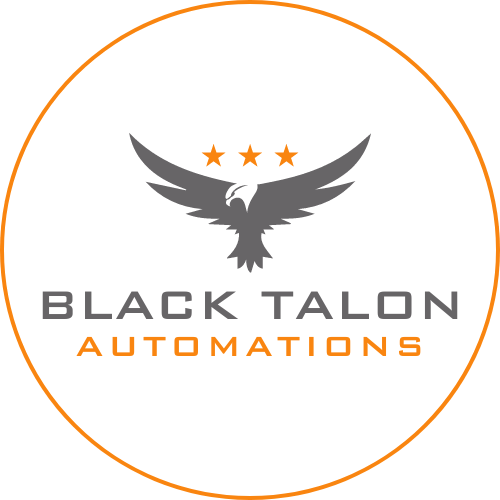The world of CRM is changing fast, thanks to AI, predictive analytics, and automation. These new technologies are changing how companies manage their customer relationships. They bring more efficiency, personalization, and insights from data.
The AI in CRM market is set to hit $72.9 billion by 2027, growing at 29.7% each year. This shows how AI-powered CRM systems are changing sales, customer engagement, and data management. AI and automation are making customer interactions more personal and improving how businesses work.
Key Takeaways
- The global AI in CRM market is expected to reach $72.9 billion by 2027, growing at a CAGR of 29.7%.
- AI and automation are fundamentally transforming customer relationship management, driving increased efficiency and personalization.
- Businesses implementing AI-powered CRM solutions are experiencing significant improvements in lead conversion rates, operational efficiency, and customer satisfaction.
- The integration of predictive analytics and machine learning in CRM enables data-driven decision-making and enhanced customer insights.
- Intelligent automation, through chatbots and virtual assistants, is streamlining customer service and reducing operational costs.
Understanding the AI Revolution in Modern CRM Systems
AI technology is changing how we manage customer relationships. AI-driven CRM systems are making lead generation, customer insights, and sales automation better. This helps businesses connect with customers more effectively and achieve success.
The Growing Impact of AI Integration
AI-powered CRM systems use machine learning to analyze lots of customer data. They find important insights and automate tasks. This lets businesses spot top leads, guess what customers will do next, and make the customer experience unique.
For example, Salesforce Einstein AI has seen a 30% jump in lead conversion rates. It also improved operational efficiency by 60% for its users.
Key Market Growth Statistics
- The global AI-driven CRM market is expected to reach $52.2 billion by 2027, growing at a CAGR of 12.4% from 2020 to 2027.
- Businesses using real-time analytics in their CRM systems have seen a 22% increase in customer satisfaction scores. They also improved sales team productivity by 17%.
Current Implementation Challenges
While AI in CRM is growing, businesses face challenges like data quality and integration. IBM estimates that poor data quality costs the US economy $3.1 trillion annually. It’s important for businesses to improve data management to fully use AI-driven CRM systems.
Predictive Analytics: Transforming Customer Insights
Predictive analytics is a key tool in customer relationship management (CRM). It helps businesses predict future outcomes using past data. These data-driven strategies change how companies connect with their customers.
Predictive analytics is great for customer behavior analysis. It looks at past actions to create detailed customer groups for marketing. It also spots customers who might leave, helping keep them.
- Enhanced Customer Segmentation: Predictive analytics helps sort customers into groups based on their actions and likes. This makes marketing more personal.
- Churn Prediction: It finds customers who might leave, so companies can keep them with special efforts.
- Sales Forecasting: It predicts sales, helping with planning, inventory, and marketing budgets.
Using predictive analytics, businesses get deep insights into what customers want and will do next. This approach lets companies make smart choices, improve marketing, and give great customer service. It leads to growth and success over time.

The Future of CRM: AI, Predictive Analytics, and Automation
The world of Customer Relationship Management (CRM) is changing fast. This change comes from AI, predictive analytics, and smart automation. These new tools are changing how businesses talk to customers, work better, and make big decisions.
Machine Learning Applications
AI and machine learning have made CRM systems smarter. They can now learn and get better on their own. This means they can understand what customers like and do, making experiences that really speak to each person.
Data-Driven Decision Making
AI-powered CRM and predictive analytics help businesses make better choices. AI looks at past data to guess what customers will want next. This lets companies meet customers’ needs before they even ask, keeping them happy and loyal.
Real-Time Analytics Implementation
CRM systems now offer real-time insights and automated workflows. This means businesses can use data right away to improve sales, customer service, and how they work. Being able to act fast on data helps companies stay ahead in a fast-changing market.
The future of CRM is all about combining these new technologies. This will help businesses work better, connect with customers more deeply, and make choices based on solid data. This way, they can grow and succeed in the long run.

Intelligent Automation in Customer Experience Management
The future of customer relationship management (CRM) is changing with artificial intelligence (AI) and automation. AI-driven chatbots and virtual assistants are becoming more than just simple query responders. They are now advanced automated customer service tools, changing how businesses talk to their customers.
The global chatbot market is expected to hit $9.4 billion by 2024, growing at 29.7% annually. Companies using AI chatbots have seen a 70% drop in customer inquiries. This makes their customer service smoother and more efficient.
AI CRM systems are great at handling lots of customer data. They analyze trends, predict what customers might need, and group customers for better marketing. This helps businesses make customer interactions more personal and timely.
- AI algorithms in CRM platforms can analyze data to drive insights on customer sentiment, performance issues, and predictive analytics.
- AI enhances sales forecasting precision by analyzing historical sales data and market trends.
- Automation in CRM streamlines tasks, such as data entry, appointment scheduling, and customer inquiries, improving operational efficiency.
While AI and automation in CRM offer many benefits, there are also challenges. These include initial costs, learning curves, and data quality issues. It’s important for businesses to find a balance between using automation and keeping a human touch in customer interactions. This ensures the customer experience stays genuine and personalized.

Enhanced Data Management and Security Protocols
Artificial intelligence (AI) is changing how we manage customer data. It’s important to focus on data security and ethics. With laws like GDPR and CCPA, companies could face big fines if they don’t follow the rules.
Studies show that 81% of people need to trust a brand before buying. This makes using ethical AI practices even more crucial.
Data Quality Improvement Strategies
Organizations are working hard to make their AI-driven CRM systems better. For example, Zoho’s Zia AI assistant can improve data accuracy by up to 30%. It does this by finding and fixing duplicates and adding more information.
Good data quality is key. Bad data can cost a lot, up to $15 million a year for big companies.
Privacy Compliance and Protection
Businesses must also prioritize privacy compliance and data protection to maintain customer trust and avoid costly penalties. AI-powered CRM systems use strong encryption and access controls. They also keep records of who accesses the data.
By doing this, companies show they care about data security and follow GDPR rules. This is important for keeping customers happy and loyal.
Automated Data Cleansing
AI-powered CRM systems are getting better at cleaning data automatically. They can find and remove duplicates, fix errors, and make data formats the same. This makes sure the data in the CRM is right and up-to-date.
Automated data cleaning makes customer data more reliable. It also saves time and effort by reducing the need for manual cleaning.

Sales Forecasting and Lead Generation Evolution
The sales world is changing fast, thanks to AI tools. These tools are making lead generation and sales forecasting better. AI-powered CRM systems can look at huge amounts of data to find the best leads. This makes converting leads three times faster and cuts down response time by half.
Marketing efforts now hit the right audience more accurately. This is especially true in B2B, where AI finds the right people to talk to. It makes sure messages get to the decision-makers.
Automation is key in making lead generation smoother. AI tools can send reminders or extra info to prospects when it’s needed. This lets sales teams spend more time closing deals, making their efforts more effective.
The future of sales combines tech and human touch. AI is changing the game with lead scoring and sales pipeline optimization. But, things like empathy, creativity, and strategy are still vital. The secret to success is using AI wisely while keeping a personal connection that builds trust and solves problems.
FAQ
What is the projected growth of the global AI in CRM market?
How are AI and automation transforming CRM systems?
What are some of the key benefits of implementing AI in CRM?
What are the main applications of predictive analytics in CRM?
How is machine learning transforming CRM systems?
What are the benefits of AI-driven chatbots and virtual assistants in CRM?
How are companies addressing data security and ethical concerns with AI in CRM?
How is AI transforming lead generation and sales forecasting?
Source Links
- https://medium.com/@MountainiseInc/the-future-of-sales-how-ai-and-automation-are-changing-the-crm-landscape-df7dbc05e106
- https://www.linkedin.com/pulse/future-crm-predictive-analytics-machine-learning-amit-de-s6wkc
- https://www.b2brocket.ai/blog-posts/ai-driven-lead-generation-and-automation
- https://www.sagefrog.com/blog/artificial-intelligence-in-crms-revolutionizing-customer-relationship-management/
- https://medium.com/@keyrev001/the-future-of-ai-in-the-development-of-crm-software-a-game-changer-for-business-success-f30a7fda8c2d
- https://pathmonk.com/predictive-analytics-anticipating-customer-behavior-with-ai/
- https://www.salesforce.com/analytics/what-is-predictive-analytics/
- https://www.dinamikcrm.com/en/blog/the-future-of-crm-how-ai-and-machine-learning-are-revolutionizing-customer-relationships
- https://engineering.salesforce.com/ai-data-automation-and-analytics-future-trends-transforming-businesses-now/
- https://www.ibm.com/think/topics/ai-crm
- https://www.netguru.com/blog/ai-and-crm
- https://www.forbes.com/councils/forbesbusinesscouncil/2024/07/11/how-ai-can-maximize-your-crm-the-future-of-customer-relationship-management/
- https://www.ttec.com/articles/4-crm-trends-driving-crm-innovation
- https://www.jellyfishtechnologies.com/the-impact-of-ai-on-custom-crm-development/
- https://www.linkedin.com/pulse/ai-powered-crm-integration-unleash-potential-your-data-must-have
- https://www.b2brocket.ai/blog-posts/next-level-lead-generation-ai-meets-crm
- https://vivun.com/blog/future-proof-sales-with-ai-sales-automation
- https://www.linkedin.com/pulse/future-sales-technology-how-ai-automation-reshaping-kapil-mehra-pieif?utm_source=rss&utm_campaign=articles_sitemaps&utm_medium=google_news




